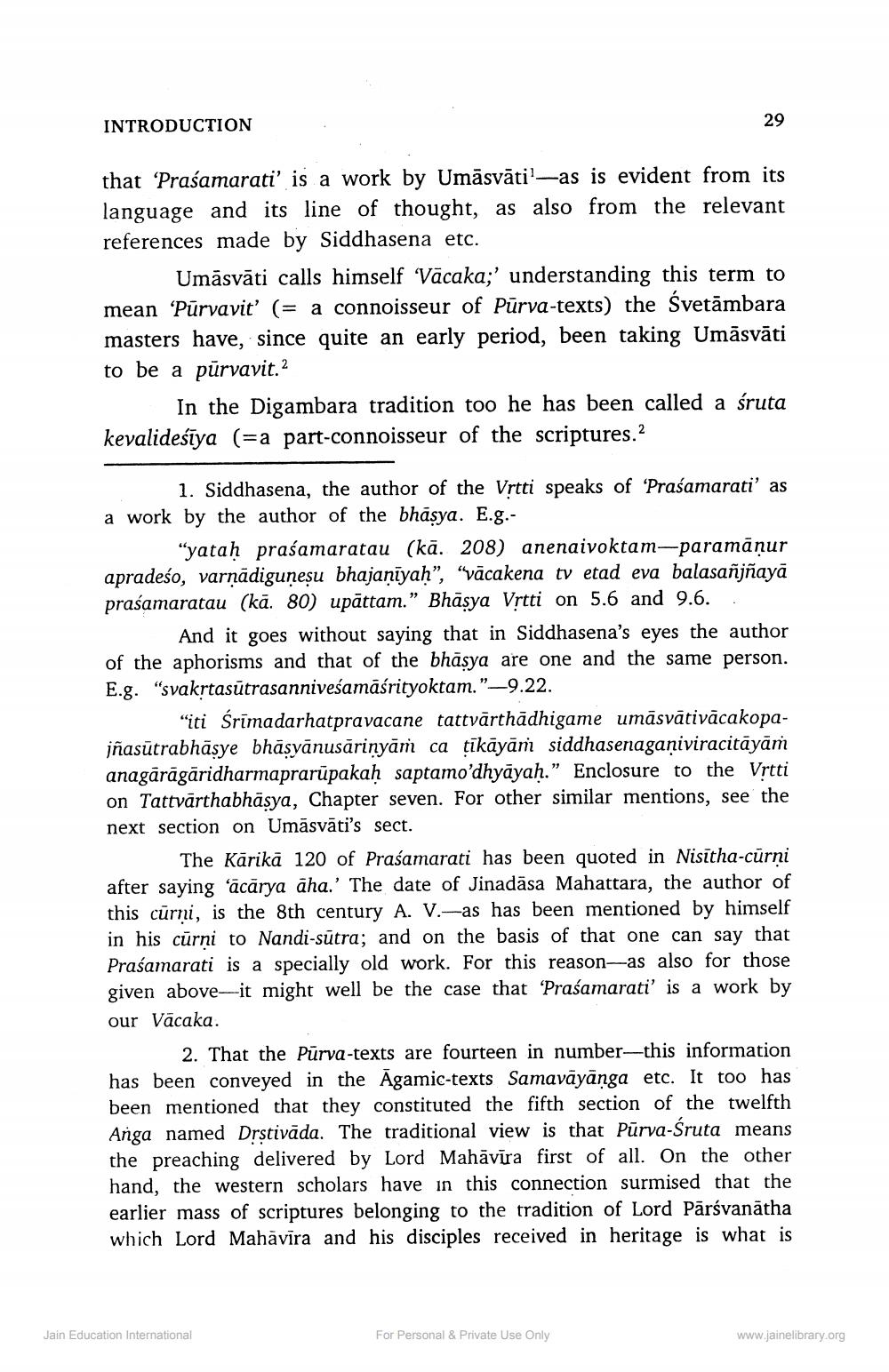________________
INTRODUCTION
that 'Praśamarati' is a work by Umāsvāti!-as is evident from its language and its line of thought, as also from the relevant references made by Siddhasena etc.
Umāsvāti calls himself Vācaka;' understanding this term to mean ‘Pūrvavit (= a connoisseur of Pūrva-texts) the Svetāmbara masters have, since quite an early period, been taking Umāsvāti to be a pūrvavit.2
In the Digambara tradition too he has been called a śruta kevalidesīya (=a part-connoisseur of the scriptures.2
1. Siddhasena, the author of the Vrtti speaks of 'Praśamarati’ as a work by the author of the bhāsya. E.g.
“yataḥ praśamaratau (kā. 208) anenaivoktam-paramānur apradeśo, varnādigunesu bhajanīyah”, "vācakena tv etad eva balasaññayā praśamaratau (kā. 80) upāttam.” Bhāsya Vrtti on 5.6 and 9.6.
And it goes without saying that in Siddhasena's eyes the author of the aphorisms and that of the bhāsya are one and the same person. E.g. "svakrtasutrasanniveśamāśrityoktam."-9.22.
"iti śrīmadarhatpravacane tattvārthādhigame umāsvātivācakopajñasūtrabhāsye bhāsyānusărinyām ca tīkāyām siddhasenaganiviracitāyām anagārāgāridharmaprarüpakah saptamo'dhyāyaḥ." Enclosure to the Vrtti on Tattvārthabhāsya, Chapter seven. For other similar mentions, see the next section on Umāsvāti's sect.
The Kärikā 120 of Prasamarati has been quoted in Nisītha-cūrni after saying 'ācārya aha.' The date of Jinadāsa Mahattara, the author of this cūrni, is the 8th century A. V.-as has been mentioned by himself in his cūrni to Nandi-sūtra; and on the basis of that one can say that Praśamarati is a specially old work. For this reason—as also for those given above-it might well be the case that 'Praśamarati' is a work by our Vācaka.
2. That the Pūrva-texts are fourteen in number—this information has been conveyed in the Agamic-texts Samavāyānga etc. It too has been mentioned that they constituted the fifth section of the twelfth Anga named Drstivāda. The traditional view is that Pūrva-Śruta means the preaching delivered by Lord Mahāvīra first of all. On the other hand, the western scholars have in this connection surmised that the earlier mass of scriptures belonging to the tradition of Lord Pārsvanātha which Lord Mahāvīra and his disciples received in heritage is what is
Jain Education International
For Personal & Private Use Only
www.jainelibrary.org




